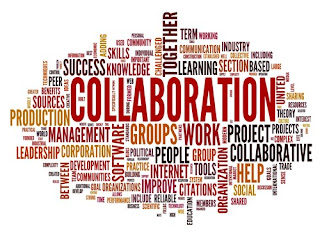Contributing to the collaborative endeavour
What does the evidence tell us about what works?
Except for the Education Review Office
For a Community of Learning | Kähui Ako to develop and function effectively the participants need to shift both their thinking and practice.
- For some, the biggest challenge is to enlarge the focus to include not only the students in their own school but also the students in all the other schools. (In a Special Education setting, we know that this will be very challenging)
- Being part of a Community of Learning | Kähui Ako means accepting collective responsibility for equity and excellence across all the schools in the community.
- Collective responsibility positions leadership differently.
- Leading improvement across a range of diverse contexts can require different expertise and different ways of working.
- Members of a community need to be clear about the purpose of leadership roles and the responsibilities they entail.
- Effective leadership is vital if the joint work that goes into a Community of Learning | Kähui Ako is to contribute to collective outcomes.
- Equitable allocation of resources, especially time and expertise, is essential for enabling a community to function in ways that grow capability and capacity.
- To contribute to and benefit from a Community of Learning | Kähui Ako, each participating organisation needs to be able to provide robust analysis and interpretation of their outcomes data along with priorities for improvement.
- Openness to learning and a willingness to share information and evidence is important conditions for collaborative inquiry that leads to improved professional practice and enhanced student outcomes.
Building collective capacity for improvement The framework below identifies what the evidence suggests is important in the development of collective capacity for improvement. This framework is a starting point for further developing the New Zealand evidence base. The sections that follow describe the components of the framework and include examples of effective practice.
Collaborative inquiry and working that challenges
thinking and practice
- In a Community of Learning | Kähui Ako, the focus of collaboration is on improving outcomes for students through changes in instructional practice.
- Collaboration involves working together on shared challenges that have been identified through the use of evidence.
- Effective collaboration engages participants in ongoing cycles of inquiry:
- identifying what is going on for students in relation to valued outcomes
- using credible evidence, identifying a problem of practice that will stretch existing knowledge and capacity but also be manageable
- designing, trying out and testing changes in practice that are aimed at solving the identified problem
- accumulating evidence of impact, refining or discarding ideas based on evidence of their effectiveness, embedding changes that prove to be effective into daily practice
- identifying the next student-related challenge.
- Effective collaboration is characterised by dense, frequent sharing of knowledge among participants, with the aim of addressing the identified challenges.
- They also connect outwards, to gain new knowledge that will complement what they already know and to maintain connections with, and actively participate in, larger networks.
- Educators experience increased efficacy and agency when leaders provide opportunities and support for engaging in collaborative inquiry.


